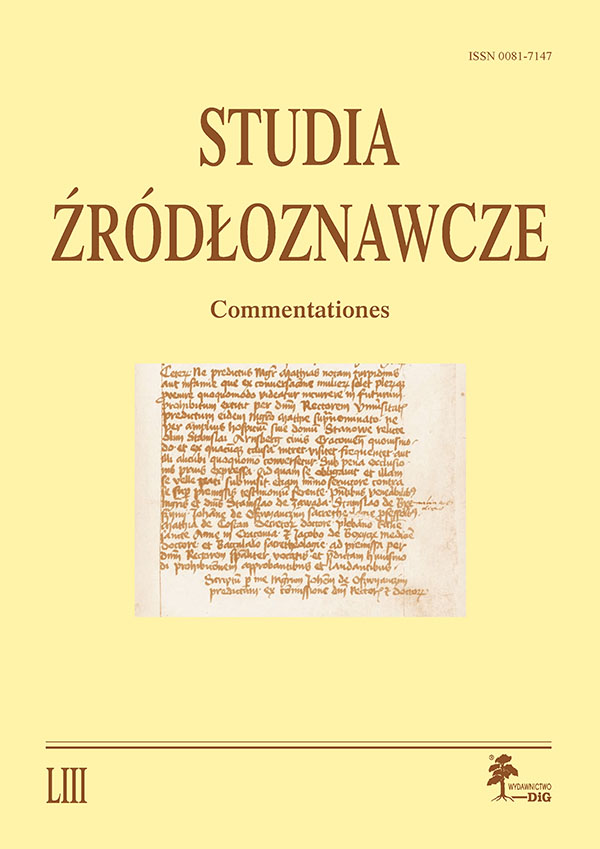Pryncypia edytorstwa źródeł historycznych w dobie rewolucji cyfrowej
DOI:
https://doi.org/10.12775/SZ.2015.09Abstract
Principles of Editing Historical Sources at the Time of the Digital RevolutionThis article proposes to examine the essence of editing historical sources at a time when rendering the contents of a source available and outfitting it with a scientific apparatus do not call for its copying and printing. The fundamental form of a publication should be the manuscript’s digital facsimile. On the other hand, its edition involves predominantly the preparation of instruments for studying the contents of the given monument and its initial interpretations. The suitable form for geographic indices as well as those of persons and objects consists of mutually connected databases corresponding to their specificity. An initial analysis of a source encompasses, first and foremost, its proper complete or partial deciphering; the ensuing effect should entail, i.a. a transcription of suitable parts of the texts and a source studies introduction. The edition of a single source is not a completed effort but a process involving also the recipient and, at the same time, comprising part of a wider undertaking, i.e. the construction of a joint base of source knowledge about the past.
Downloads
Published
How to Cite
Issue
Section
Stats
Number of views and downloads: 518
Number of citations: 0



